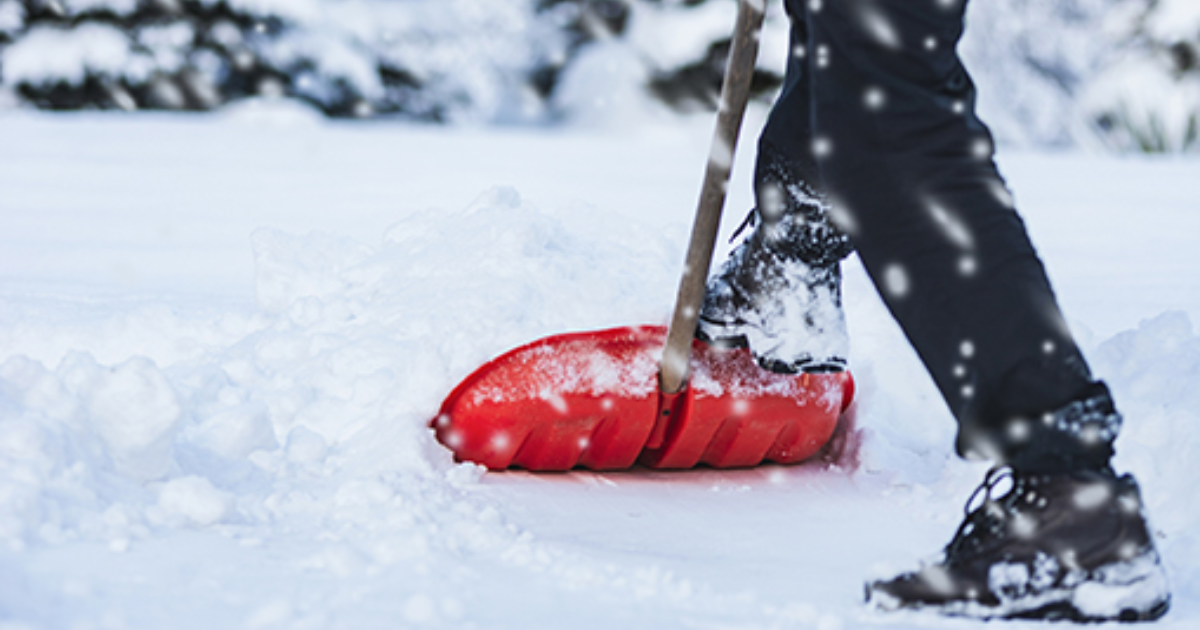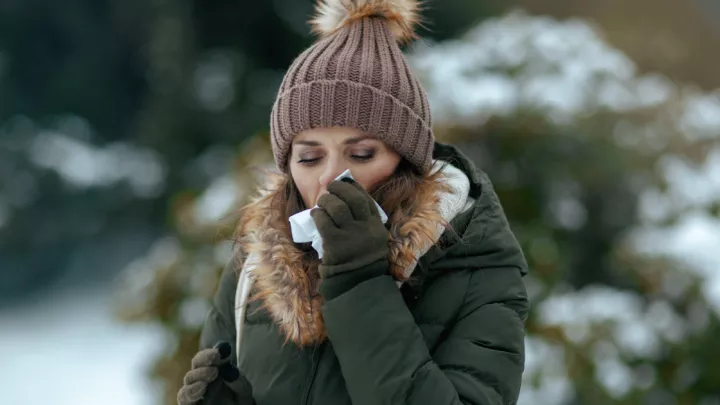25 foolproof tips to avoid winter weather woes

Winter weather can bring on all types of cold weather woes from falls on wet, slippery sidewalks to back pain from snow shoveling to dry, itchy, crackly skin. Here’s how to prevent these cold weather problems from putting a damper on your winter activities.
Don’t let an aching back or a chronic, dry skin problem linger. Get the help you need. Call us at 800.922.0000.
9 ways to watch your step
Snowy, slippery sidewalks are a major source of falls during the winter months and one of the leading reasons people visit emergency rooms (ER).
Chris Cornett, MD, a Nebraska Medicine orthopaedic surgeon recommends the following steps to prevent falls:
- Keep sidewalks and steps free of snow and ice
- Remove clutter that could easily be tripped over in places where you walk
- Remove small throw rugs
- Keep items you use frequently within reach to avoid the use of a step stool
- Improve lighting in the home
- Install grab bars next to the toilet and in the tub or shower
- Wear shoes that provide good support and have thin, nonslip soles
- Use a medical alert bracelet for the elderly
- Exercises regularly with a combination of weight lifting and cardio exercises. It will make you stronger and more coordinated
“Falls are one of the primary causes of disability among the elderly,” says Dr. Cornett.
Dig into these 10 shoveling pointers
Shoveling sidewalks clear to prevent falls can present its own set of issues. Snow shoveling is hard work and can wreak havoc on your back without the proper precautions.
Nebraska Medicine neurosurgeons suggest the following tips to help you avoid injury while keeping your sidewalks clear:
- Wear sturdy footwear with good tread and protective clothing.
- Warm up your muscles before you get started. Cold, tight muscles are more prone to injury than warm, flexible muscles. Do some gentle stretching before you head out.
- Lift small scoops of snow, especially if snow is heavy.
- Try pushing the snow instead of lifting it.
- Avoid arching your back and bending forward.
- Bend your knees and keep your back straight.
- Take frequent breaks.
- Avoid aggressive twisting action by pivoting your whole body to face a new direction.
- Do not throw snow over your shoulder.
- Walk to deposit snow instead of reaching and tossing.
What to do in case of injury
If you are experiencing new soreness, simple conservative measures can often help alleviate symptoms. These include rest, heat or ice, and over-the-counter nonsteroidal anti-inflammatories, such as acetaminophen or ibuprofen. If your pain persists, you should be evaluated by a physician. Watch for these symptoms:
- Pain not responding to conservative management at home
- Low back pain persisting for more than a few weeks
- Severe pain that seems beyond what would be expected from a muscle sprain
- Pain radiating down either extremity
- New weakness
6 tips to avoid that dry skin itch
The harsh, dry winter air can wreak havoc on your skin. By taking some extra preventive measures you can prevent dry, cracking, itchy skin and flare ups of other skin conditions.
Nebraska Medicine dermatologist Megan Arthur, MD, recommends the following winter skin tips.
- Limit your time in the shower and avoid very hot showers, as the heat strips oils from your skin.
- Avoid scented deodorant, lotions, antibacterial soaps and hand sanitizers that contain alcohol, which can be irritating to the skin and remove natural moisturizers. Use a fragrance free, nonsoap cleanser.
- After showering, pat your skin gently and lock in moisture with a good moisturizer while the skin is damp.
- Apply thick moisturizers every day. Creams and ointments that come in jars rather than pump bottles are usually better at locking in moisture. The greasier the better. Petroleum jelly is a good option.
- Running a humidifier in your home can help replenish moisture in the air.
- Cover up when you go outdoors to prevent cold temperatures and wind from drying and chaffing your skin.
“If you have dry, itchy, scaly skin that seems to be more than a winter flare up, consider being evaluated by your doctor,” says Dr. Arthur. “There are many types of treatments today that can help minimize your skin condition and provide relief.”






